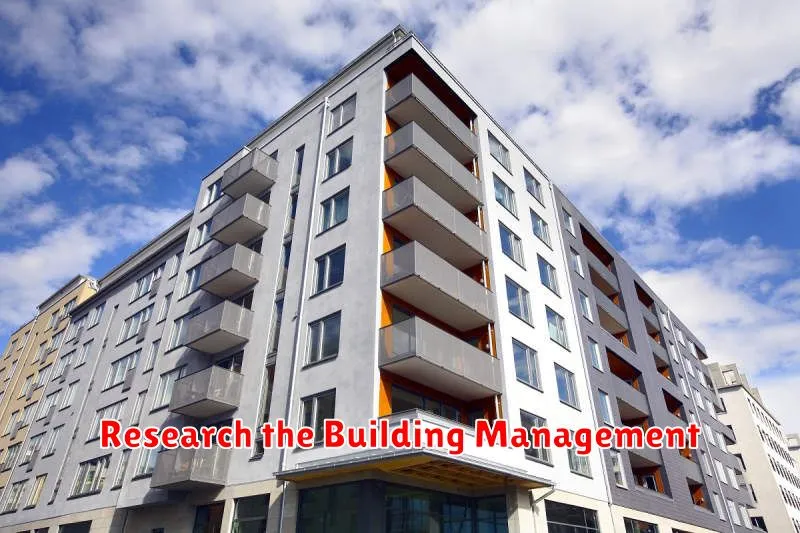Finding the perfect apartment can feel like a daunting task. From location and budget to amenities and size, there are numerous factors to consider. This guide, “How to Choose the Right Apartment for Your Needs,” will provide you with the essential tools and knowledge to navigate the apartment hunting process effectively. Learn how to prioritize your needs, assess potential apartments, and ultimately make an informed decision that aligns with your lifestyle and budget. Whether you’re a first-time renter, a seasoned tenant, or simply looking for a change, understanding your priorities is crucial to finding the right apartment.
Choosing the right apartment is more than just finding a place to sleep; it’s about finding a space that truly feels like home. This comprehensive guide will explore key considerations such as lease terms, pet policies, parking availability, and neighborhood safety. By understanding these factors and applying the advice provided, you’ll be well-equipped to confidently choose an apartment that meets your specific needs and enhances your overall quality of life. Take the stress out of apartment hunting and embark on this journey with confidence, knowing you have the resources to find the ideal place to call home.
Define Your Must-Haves and Deal-Breakers
Before you start your apartment hunt, clearly define your must-haves and deal-breakers. This crucial step will save you time and prevent future frustrations.
Must-haves are non-negotiable features. Think about what you absolutely need in an apartment. Examples include a certain number of bedrooms or bathrooms, in-unit laundry, pet-friendliness, or proximity to public transportation.
Deal-breakers are features that would automatically disqualify an apartment, no matter how appealing other aspects might be. This could include things like lack of parking, being located on a busy street, or absence of essential appliances.
Compare Locations and Accessibility
Once you’ve identified potential neighborhoods, compare their locations in relation to your daily needs. Consider the proximity to your workplace, school, or family.
Think about transportation options. Is public transportation readily available? Will you primarily rely on a car? Factor in commute times and potential traffic congestion.
Accessibility is another key consideration. If you have mobility limitations, ensure the building and unit itself are accessible. This includes features like ramps, elevators, and wider doorways.
Assess Safety and Amenities

Safety should be a primary concern when choosing an apartment. Inquire about security measures such as gated access, security cameras, and on-site personnel. Research the neighborhood’s crime statistics and consider factors like street lighting and proximity to emergency services.
Amenities can significantly enhance your living experience. Determine which amenities are essential to you and which are simply desirable. Consider factors such as in-unit laundry, parking availability, fitness facilities, and pet policies. Balance your needs with your budget, as amenities often impact rental costs.
Review Pet and Parking Policies
Pet policies vary significantly between apartment complexes. Some buildings may not allow pets at all, while others might have restrictions on breed, size, or number of pets. Be sure to inquire about any associated fees, such as pet rent or deposits.
Parking is another crucial factor. If you own a vehicle, confirm the availability of parking spaces. Determine if parking is assigned or unassigned, covered or uncovered, and whether there are any associated costs.
Understand Rent and Deposit Costs
Before you start apartment hunting, establish a realistic budget. Rent is your biggest monthly expense. Factor in additional costs like utilities, which may or may not be included in the rent. Consider your income and aim for rent that’s no more than 30% of your net earnings.
Security deposits are typically required upfront. This money protects the landlord from potential damages. Understand the deposit amount and the conditions for its return. Clearly define what constitutes “normal wear and tear” to avoid disputes later. Also, inquire about other potential move-in costs, such as application fees or pet deposits, so you’re not caught off guard.
Visit at Different Times of Day
A crucial aspect of apartment hunting is visiting at different times of day. This allows you to accurately assess the living environment. Daytime visits are essential for evaluating natural light and the general atmosphere of the building and neighborhood.
However, don’t stop there. An evening visit can reveal a drastically different perspective. Noise levels, neighborhood activity, and parking availability can change significantly after dark. Consider a weekday versus a weekend visit as well. This allows you to assess typical traffic flow and neighborhood noise during different activity levels.
Check Noise Levels
Noise levels are a critical factor to consider when choosing an apartment. Excessive noise can significantly impact your quality of life, affecting sleep, concentration, and overall well-being.
Visit the apartment at different times of the day to assess the noise levels. Weekday evenings and weekend afternoons are particularly important times to check, as these periods often reflect typical noise levels from neighbors and surrounding areas.
Pay attention to both internal and external noise sources. Internal sources might include noisy plumbing, thin walls, or loud neighbors. External sources could be traffic, construction, or nearby businesses. If possible, speak to current residents about their experiences with noise in the building.
Research the Building Management

A building’s management can significantly impact your living experience. Thoroughly research the management company’s reputation. Look for reviews and testimonials from current and former tenants. A responsive and responsible management company can make a world of difference in addressing maintenance issues, handling complaints, and fostering a positive community environment.
Consider the communication methods the management uses. Do they have an online portal? How quickly do they respond to inquiries? Effective communication is essential for a smooth tenancy.
Pay attention to how the building is maintained. Is it clean and well-kept? This can be a good indicator of how the management company operates and their commitment to tenant satisfaction.
Talk to Current Tenants
One of the best ways to get an accurate picture of what it’s like to live in a specific apartment building is to speak with current residents. Directly asking tenants about their experiences can provide invaluable insights that you won’t find in online reviews or brochures.
Consider inquiring about key aspects of their living experience such as:
- Noise levels: How disruptive are the neighbors or street noise?
- Management responsiveness: How quickly does management address maintenance requests or other concerns?
- Pest control: Have they experienced any issues with pests?
- Safety and security: Do they feel safe in the building and surrounding area?
Be polite and respectful when approaching tenants. A brief, friendly conversation can make a significant difference in your decision-making process.
Finalize Based on Priorities
After evaluating potential apartments, the final decision rests on prioritizing your needs. Budget often plays a crucial role. Ensure the rent, utilities, and other associated costs align with your financial capabilities.
Location is another key factor. Consider proximity to work, amenities, and social activities. Balance convenience with affordability.
Finally, assess the apartment features themselves. Does the layout suit your lifestyle? Are the amenities, such as laundry or parking, essential to you? Making these prioritized assessments will guide you to the right choice.

